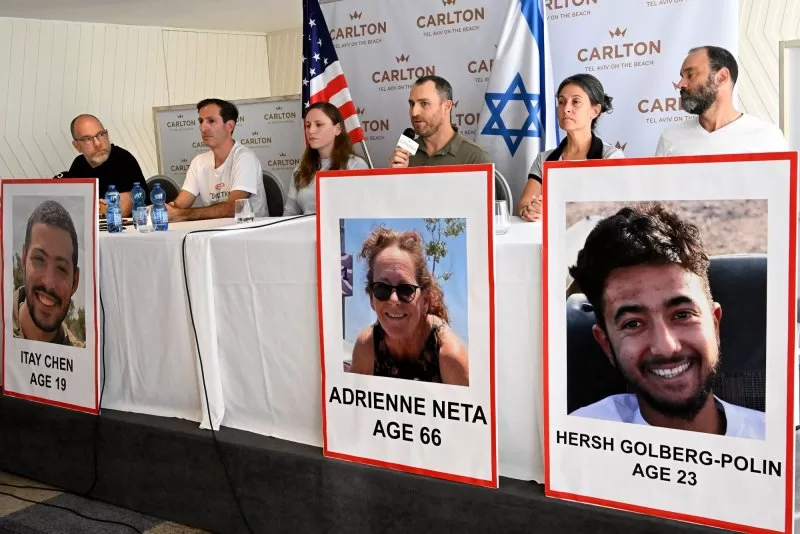April 24 (UPI) — Hamas on Wednesday released a video of injured Israeli-American hostage Hersh Goldberg-Polin. The video showed him delivering a long statement that appeared to have been written by Hamas.
In a Wednesday statement from Hostage Families Forum, Goldberg-Polin’s parents said, “Hersh’s cry is the collective cry of all the hostages — their time is rapidly running out. With each passing day, the fear of losing more innocent lives grows stronger.”
Their statement added, “We cannot afford to waste any more time; the hostages must be the top priority.”
In the video, he references his 200 days in as a hostage, seeming to indicate the video was released to mark April 24, the 200th day day since hostages were taken into Gaza by Hamas.
In the video, which shows a missing left hand, he criticizes Prime Minister Benjamin Netanyahu, but due to his captivity it was assumed his comments were made under duress.
His video statement included a statement that said “about 70” of the hostages had been killed by Israeli airstrikes.
He also said in the video that Netanyahu should be ashamed to continue the Gaza war while hostages are held in an “underground hell” without food, water or sun.
Goldberg-Polin was shown to be seriously injured in a video as he was taken hostage in the Hamas rampage attack Oct. 7 in Israel. An eyewitness to that injury said he was hurt when he helped to try to throw grenades back out of a bunker during the Hamas attack.
The Hamas video was the first proof Goldberg-Polin’s family have had that he survived his injuries while being abducted.
He was acknowledged along with other Israeli-Americans seized by Hamas by U.S. Vice President Kamala Harris after she met with American hostage families April 9.
She said then in a statement, “These are innocent Americans who were brutally taken hostage by Hamas 186 days ago.”
The families of the Israeli-American hostages have been calling urgently for the release of their loved ones since the hostages were first taken, stressing that the Israeli government has a responsibility to get them released.
While the exact number of surviving hostages in capitivity isn’t known, it is believed that roughly 130 of the original 240 people taken are still held in Gaza.
